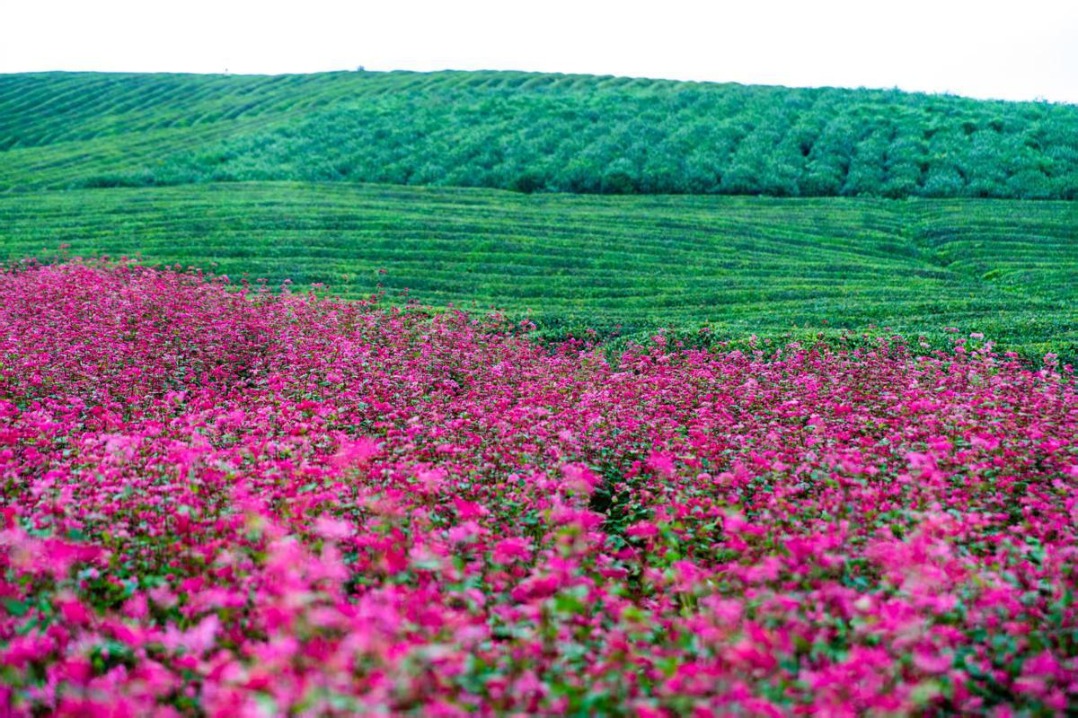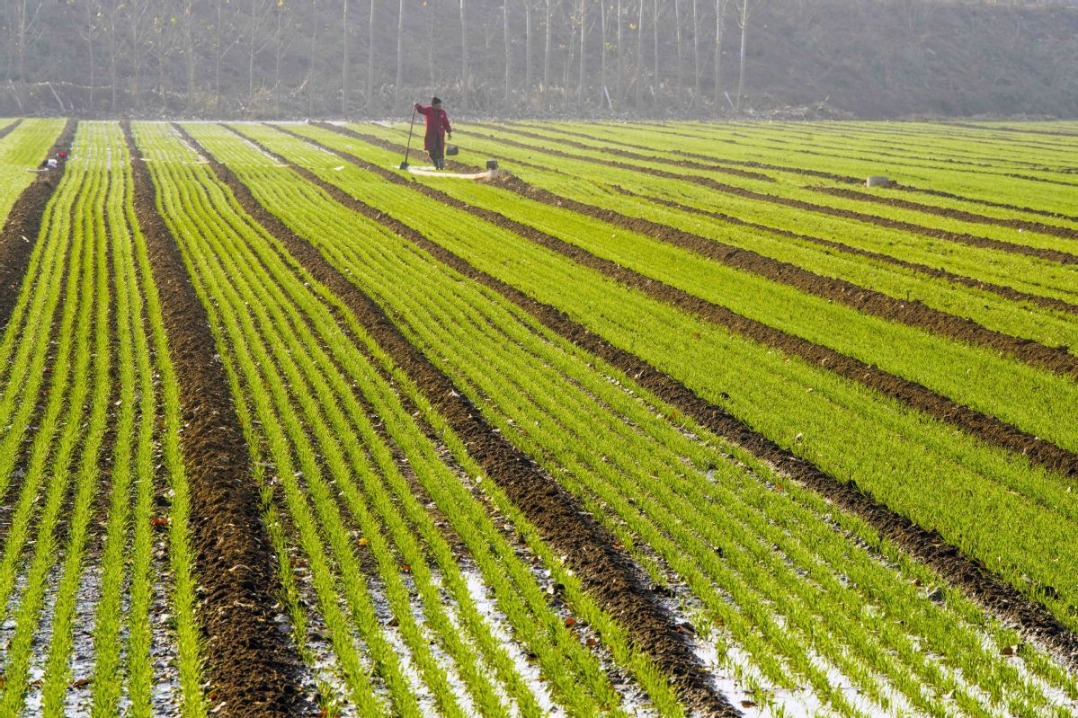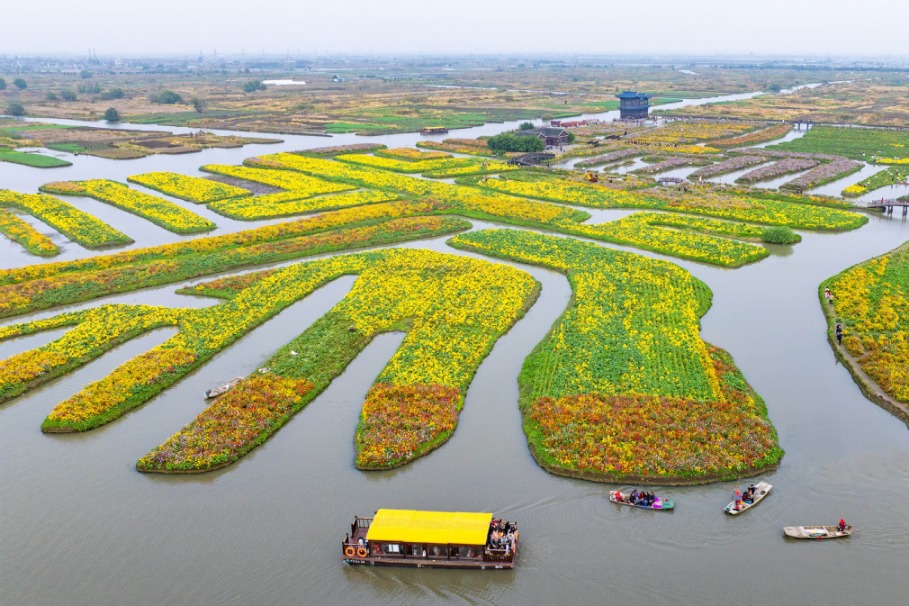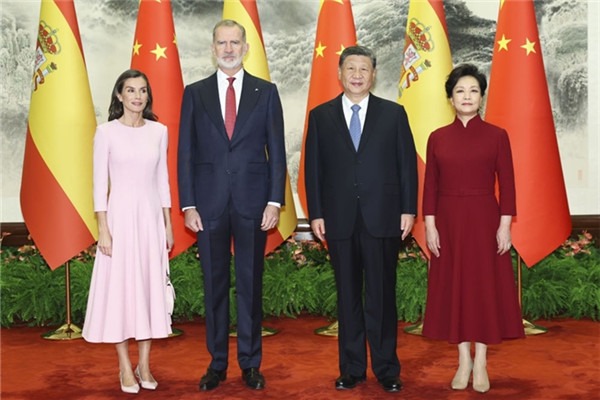Vision China II – 'A Community of Shared Future for Mankind'

Vision China II – "A Community of Shared Future for Mankind"
A Better Future For Everyone
[Hello and thank you for the introduction]
As you just heard, my name is Greg Fountain, and if you recognize my face - or voice - then there's a good chance you'll also be familiar with some of the work we do at China Daily's new media department.
If, on the other hand, you have no idea who I am, here's a little introduction: Since moving to Beijing slightly over two years ago, I've hosted a dozen or so of China Daily's "Good Luck China" videos - which focus on the country's development and achievements - as well as our more recent, longer form documentary-style series, "Decoding The New Era".
The process of filming these videos has taken me from Hainan in the south, way up to the border of Inner Mongolia in the north - and many, many places in between.
Along the way, we've documented some of the fruits of China's model of inclusive development - a model that's now being put forward as the Chinese solution to current global challenges.
Dubbed "a community of shared future for mankind", this vision of comprehensive shared development is based on recognition of the economic interconnectivity of all nations as a global community that is both interdependent and increasingly integrated - as Laurence Brahm, senior fellow at the Center for China and Globalization, puts is.
It's an all-encompassing idea that embraces diversity, mutual respect and multilateralism born out of China's own experience in rising from poverty to economic strength, he says.
This rise can be thought of in a variety of ways, from GDP growth to mounting international influence. But oddly enough, the way I like to think of it is in terms of internet penetration.
At the turn of the millennium, there were approximately 361 million people in the entire world who used the internet.
Some 17 years later, that number has grown to more than 4 billion - about 434 million of whom are in Europe, with something like 290 million in the United States.
But in China, there are 772 million internet users and counting!
That's a lot of people - and a vast sphere of influence within which homegrown tech giants have flourished and innovated in ways that often put their Western counterparts to shame.
Just look at WeChat, for example - I'd barely even heard of it three years ago, whereas now I'm not sure I could go a day without it!
Shared bikes, too, are a wildly popular Chinese innovation that have spread across the country, and are increasingly taking the wider world by storm.
And these are just two examples - there's a whole host of other areas where the world's most populous country and second largest economy has wisdom to spare.
When our team visited the Ningxia Hui autonomous region last summer, for instance, we saw how a burgeoning wine-making industry and other forms of modern agriculture are helping to bring prosperity to an arid, long underdeveloped region.
Earlier that same year, we visited Saihanba National Forest Park in Hebei province (which is huge by the way - that's me there for scale) and discovered a green oasis the size of Hong Kong that's been reclaimed from the encroaching desert through generations of innovation, dedication and toil.
Both these are case studies in how a little Chinese wisdom can go a long way - desertification is a problem facing numerous areas of the world, particularly in Africa, while the "Bordeaux of China" (as Ningxia is sometimes known) is testament to how targeted investment, given government support, can transform barren plains into award-winning vineyards.
In the technological realm, too, China has much to offer. We see it in the bullet trains that now crisscross the country, in some cases cutting journey times down to hours from the previous days.
Chinese communications technology has come on in leaps and bounds as well - in our videos we've tracked its development from the humble writing brush, to domestically developed ballpoint-pen tips, speech recognition technology and big data.
I feel fortunate to have had the opportunity to see all these things. The experience has certainly opened my eyes - and left me with the impression that all eyes must now be on China, if we want to know what the future is going to be like.
China, after all, has entered a new era and is increasingly being looked to for ideas, especially as the entrenched value systems of the late 20th century appear to be faltering under the weight of a rapidly evolving world.
The country is showing growing economic leadership, with its support of the Asian Infrastructure Investment Bank and policies such as the Belt and Road Initiative - a key manifestation of the China-led globalization model that seeks to grow connectivity between Asia, Europe, Africa and further afield.
It is also inspiring hope with its commitment to the Paris climate agreement - an accord within the United Nations Framework Convention on Climate Change that seeks to limit global warming this century to below two degrees Celsius, an internationally recognized threshold beyond which we could expect to see a greatly increased risk of dangerous climate change.
Confirmation of that commitment came on the eve of the first-ever G20 summit to be hosted by China, which was held here in Hangzhou back in 2016. At the meeting the dual themes of development and inclusiveness were brought to the fore - as were the ideas of innovation and interconnectedness. Indeed, the nation proved itself to be the most inclusive G20 host yet, with a record number of guests from the developing world in attendance.
Our team visited Hangzhou that year just before the summit got underway, to make a video inspired its logo - a bridge, (which you can see here superimposed over the famous Broken Bridge on West Lake).
Bridges, of course, serve as a metaphor for connection and symbolize cooperation.
In English, when we talk about "building bridges", there's an underlying meaning of improved relations - often between people who are very different, from disparate backgrounds.
Which brings us back nicely, I feel, to the theme of today's talks: "A Community of Shared Future for Mankind".
This concept of President Xi Jinping's has won international praise for being a timely, long-term vision underpinning the new global trade order today.
When compared to the post-World War II model of US-led globalization, "constructive Chinese engagement in international affairs" will create a "more equal distribution of trade powers", former British trade minister Stephen Green said in January.
According to veteran diplomat and former chair of the National People's Congress Foreign Affairs Committee Fù Yíng the objective of creating a "community of shared future" is part of China's recognition of the need "to consider wider global interests, help protect world peace, advance sustainable development, and actively promote international cooperation."
She described it as a celebration of diversity and inclusiveness that respects the legitimate interests and values of nations, regardless of their social systems or levels of development.
It's also a phrase that's been written into United Nations security resolutions - reflecting the concept's acceptance within the wider international order.
On December 24, for example, the General Assembly adopted a resolution on the prevention of an arms race in outer space:
"with a view to promoting and strengthening international cooperation in the exploration and use of outer space for peaceful purposes, with the objective of shaping a community of shared future for mankind."
This concept, then, is patently something more than just a slogan. It's a maxim for the whole world, not just China, to live by.
Because at its root, is the idea that we all share something in common - at least, that's how it looks to me.
When I look at this phrase, I see something very hopeful - to me, there's two words that really stand out.
"Shared". "Mankind". Or to put it another way, "shared humanity"
And what could be more hopeful than that?
Because whoever you are and wherever you're from, regardless of the language you speak or what you believe - we, all of us, do share something in common.
And it's this shared humanity that we must look to in future, if the global community we all inhabit is to thrive.
Thank you.
- National Games showcase Guangdong, Hong Kong, Macao cuisine
- Xiangyang legislators expand public feedback channels
- Beijing court cracks down on medical fraud cases
- Gambling ringleader sent back to China
- Intl experts raise alarm over the accelerating loss of biodiversity
- China's power battery industry records nearly 50% jump in sales





































